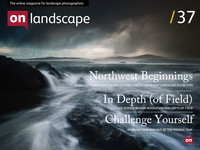You've got the equipment but what about the ingredients?

Peter Cook
Surrey Photographer who's had a life long love affair with the British landscape, mountains and water.
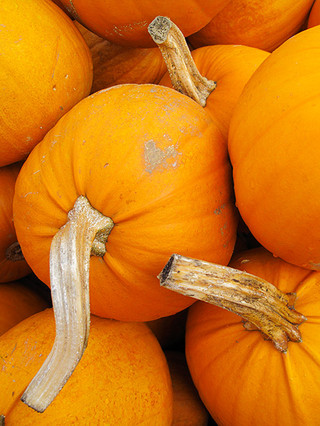 When it comes to improving their photography many photographers fall into the trap of placing the equipment at the top of the list. They presume that the latest upgrade or the next model up the range will be just what they need to take better photographs. Now don't get me wrong, if you have great photographic craft then better equipment can capture better images but if you're starting out in photography, struggling to achieve what you consider to be successful images or just simply feel you are not happy with your photography then buying a new body or lens(s) is not, I would suggest, the best solution.
When it comes to improving their photography many photographers fall into the trap of placing the equipment at the top of the list. They presume that the latest upgrade or the next model up the range will be just what they need to take better photographs. Now don't get me wrong, if you have great photographic craft then better equipment can capture better images but if you're starting out in photography, struggling to achieve what you consider to be successful images or just simply feel you are not happy with your photography then buying a new body or lens(s) is not, I would suggest, the best solution.
The purpose of this article is not to be an in depth tutorial on how to improve the situation described in the previous paragraph but to give you a roadmap to point you in the right directions. From this I hope you can go off in these various directions and work at being a better, happier photographer. The stuff I am going to discuss is not all free, some of it could be as much or more than that new lens or body but I strongly believe that the benefits to your photography and your contentment as a photographer will outstrip by a long way the benefits you might obtain from that equipment purchase. This roadmap is aimed at landscape or outdoor photography but the principles apply to all types of photography.
So we will ignore camera’s and lens’s for the rest of this article and I will try and lay out this roadmap that I hope will help you achieve these improvements.
In that first paragraph I used the word ‘Craft’, I feel that consistent good photography comes in three main parts which I put under this umbrella of 'Craft'. These are Knowledge, Practice and Patience. There is also another subject I wish to discuss which lies outside of this umbrella of craft and that is ‘other equipment’.
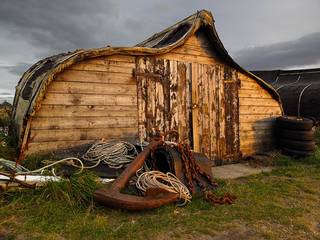 The first of those is Knowledge. When I use the term knowledge I don't just mean the nuts and bolts of photography - the understanding of all the many technical things that are required in the taking, processing and outputting the photograph - I also mean things such as empathy with the subject, understanding the light and imparting emotion into the final image.
The first of those is Knowledge. When I use the term knowledge I don't just mean the nuts and bolts of photography - the understanding of all the many technical things that are required in the taking, processing and outputting the photograph - I also mean things such as empathy with the subject, understanding the light and imparting emotion into the final image.
You can improve your knowledge in many ways but possibly the most effective is going on a course of some sort, either a short one or two day course or a longer holiday. If courses and holidays are out of reach financially then other ways of improving your knowledge are with tutorial DVD's or reading books or searching the internet for articles and tutorials (and there are many good sites online such as that have very good information available). Some bits of this knowledge are perhaps easier to get to grips with than others, the easier bits are often the technical things such as the effect the aperture and shutter have on the image, the harder bits are usually things like getting emotion into the final image, these subtle and usually harder areas are often only mastered with the next part which is practice.
Practice makes perfect? Well that may not be entirely true but practice will improve your photography and nothing can really substitute for the good old graft of getting out and taking photographs. This is absolutely vital in improving your photography, not only will it enable you to put into action things you learn from the 'Knowledge' part, it will also feed information back into your knowledge. As you continue to learn how your equipment works, how light works its magic, how to read the weather, how to deal with tricky conditions, how to 'see' you will be constantly feeding information back into your knowledge. Never underestimate what you will gain from just getting out and being a photographer, you may not even realise you're learning but you are, and this learning while working process is something that never really stops no matter how good you get.
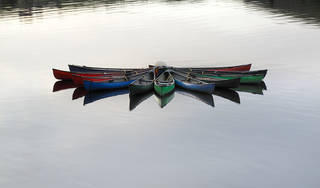 Don't forget that you can also stay at home and practice the 'processing' side of your photography, this is also a fundamental part of your photographic skills and while most photographers would much rather be outside taking photographs than sitting at home on the computer, putting into practice the knowledge you learn on the processing side is just as vital.
Don't forget that you can also stay at home and practice the 'processing' side of your photography, this is also a fundamental part of your photographic skills and while most photographers would much rather be outside taking photographs than sitting at home on the computer, putting into practice the knowledge you learn on the processing side is just as vital.
With practice, all the skills of photography will become second nature, the camera for instance will become an almost invisible part of you which will allow you to put all your thoughts and energy into your creative vision of the world, which is absolutely vital if you want to become a consistently better photographer. Practice will also help make you a calm photographer, and a calm photographer is more likely to bring home the goods than a stressed one.
Now we get to patience. Photographers generally need patience in bucket loads. We need it when we are standing by the tripod waiting for the light to change at the same location for the umpteenth morning in a row. We need it to put in the hours finding locations. We need it when the computer decides to throw a wobbly. And we need it at many other times along the road of photographic life. You need to develop a patient attitude towards photography, patience like practice will help you be a calmer photographer.
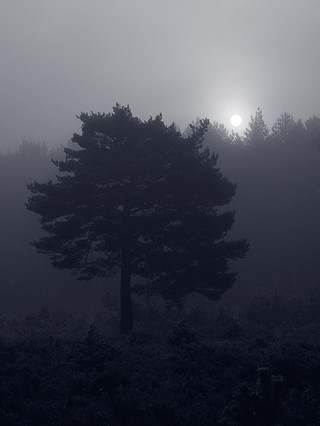 All of these three parts feed into each other, for instance if you are well practiced with your equipment and are patiently waiting for the light to change you will more than likely be in a calm state of mind. If you're calm you are more likely to see something you would not have seen had you been stressed and this new something may well add to your knowledge.
All of these three parts feed into each other, for instance if you are well practiced with your equipment and are patiently waiting for the light to change you will more than likely be in a calm state of mind. If you're calm you are more likely to see something you would not have seen had you been stressed and this new something may well add to your knowledge.
Finally we come to ‘other equipment’. One of the most important pieces of other equipment is a good solid tripod and head, and for this item to be of any value at all you must actually carry it with you and use it. Most landscape photographers use one all the time and for good reason. A tripod does many things other than the obvious one of making sure there is no camera movement. A tripod will slow you down and help you think more about the shot, and if you're thinking more then you have a better chance of creating something good. A tripod will help you adjust the viewpoint so it’s just right and then hold the camera in the same place while you wait for the light to reach perfection, which is important as often that little burst of perfect light will only last a few seconds and you don’t want to spend any of them framing up the shot again. A tripod is a very important bit of equipment, but as I said you have to carry it with you all the time to get the value of it so make sure you get one that is sturdy but light enough to carry wherever you go, as a tripod left in the boot of the car is no good to anyone.
Another piece of additional equipment are filters, these are important tools that allow the photographer to adjust, in some way or another, the light that hits the sensor (or film). Again there are many sources of information on the types and uses of filters but they should become an essential part of your gear as should a spare battery. How depressing would it be if you failed to get a great photograph because your camera battery died at just the wrong time.
A cable or remote release is also well worth having, this should help alleviate any vibration you might get as your excited finger stabs at the shutter release.
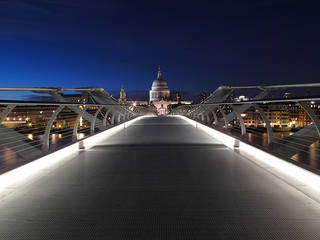 The next items of additional equipment relate more personally to you the photographer rather than your photography, but they can - and I believe do - have an effect on the quality of your images.
The next items of additional equipment relate more personally to you the photographer rather than your photography, but they can - and I believe do - have an effect on the quality of your images.
Most important of these is clothing. You should have appropriate clothing for the time of year and conditions that you are going out in. Apart from the potential dangers of not being adequately dressed it is also important for the quality of your photography. If you are cold and wet you naturally won't be giving photography your full attention, and that means you are more than likely not achieving the best photography that you're capable of, which is not the ideal situation to be in. So make sure that you have suitable clothing and footwear to keep you comfortable, as you can then put all your attention into your photography.
Food is also important, have a few rations with you as hunger can often be distraction but worse it can make you leave a location earlier than you perhaps should which may well cause you to miss the appearance of the perfect light.
Next it's good to have a comfortable way of carrying all your equipment (especially the tripod!), you are more likely to explore further and be more relaxed when you get there if you have a good comfortable bag or rucksack that also keeps your equipment dry.
Finally good preparation should become part of your routine, if you are getting up early then get everything you need ready the night before, plan where you are going and allow plenty of time to get there and get set up. Things happen with light very quickly first thing in the morning so you do not want to be rushing about in the morning and getting stressed, as I have emphasised before its all about staying as calm and relaxed as possible. And don't forget to set the alarm!
So I hope you can see that what I am trying to advocate with this article is that simply replacing a lens or body with a newer or higher spec version will not necessarily yield better results. If you fall into the categories I mentioned in the first paragraph then I feel your photography would be much better served spending time and money on improving your craft with the equipment you have - and perhaps some of the additional equipment mentioned - than it would be by spending that money on a new body, lens or camera. Once you have worked at improving your craft to a higher level you can review your position and see if you still think that new body, lens or camera is needed. I think you will be a better and happier photographer for making the effort.
You can visit Peter Cook's website at http://www.seeingthelight.co.uk

